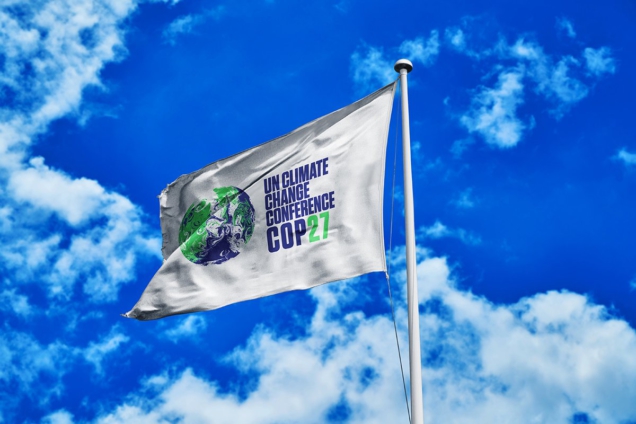The International Capital Market Association (ICMA), which sets the rules in the bond market, has proposed plans for countries hit by natural disasters caused by climate change to automatically freeze debt payments.
The introduction of new 'climate resilient debt clauses,' or CDRCs, aims specifically at low-income countries affected by disasters such as drought, flooding, and hurricanes.
Governments in such countries can use sovereign bonds to raise funds on global capital markets.
The mechanism will allow African countries on the verge or in the throes of a debt crisis to pause debt payments for a maximum of two years in order to free up cash flow to combat climate disasters.
Mr Samaila Zubaru, President and Chief Executive of Africa Finance Corporation, stated on Wednesday, November 9, 2022, that adaptation must be a priority for the continent, but it puts additional strain on Africa's current infrastructure needs.
He said, there is a great need in Africa and that, the infrastructure deficit is estimated to be $2.3 trillion.
"If you factor in the need to climate-proof and build resilient infrastructure, it becomes about $3 trillion.”
On the same day that many African delegates sought opportunities to make their cases heard, a group of over 85 African insurers unveiled the African Climate Risk Facility (ACRF) to assist the continent's most vulnerable communities in climate-proofing.
The commitment will protect 1.4 billion people from floods, droughts, and tropical cyclones by providing $14 billion in climate risk insurance to African sovereigns, cities, aid agencies, and non-governmental organizations (NGOs) through 2030.
Both measures will go a long way toward closing the continent's climate risk financing gap, as rich nations continue to dismiss demands for compensation for countries suffering "loss or damage" as a result of global warming.
Experts believe that if African borrowers can use the newly introduced CDRCs to avoid sovereign defaults while dealing with the aftermath of their latest natural disaster, it will benefit not only affected populations but also their global creditors.
On November 14, a panel of speakers from the private, public, and civil society sectors will discuss solutions to commodity-driven deforestation and highlight efforts to better conserve and restore forests while improving farmer livelihoods.
They will also discuss current initiatives, such as the Agri-Commodity Sector Roadmap, the Forest Data Partnership, US government action, and others, as well as future challenges.
Latest Stories
-
Disregard Wontumi TV presenter’s misleading broadcast on Election 2024 voting date – EC
1 hour -
I’ve no plans to leave comedy for movie production, says Basketmouth
2 hours -
Akufo-Addo seeks to use Bawumia to complete Akyem Agenda– Asiedu Nketiah
3 hours -
‘Bawku conflict politicised for electoral gains’ -Martin Amidu alleges
3 hours -
‘Let industry players play the game ‘ – AOMC boss slams political interference in oil sector
3 hours -
Let’s learn from ExxonMobil, high flyers must lead the way for mergers – AOMC Boss
3 hours -
‘So many regulations, yet corruption prevails’ – Dr Riverson Oppong on OMC oversaturation
4 hours -
At least 24 dead after two boats capsize off coast of Madagascar
4 hours -
Madina MP lauds White Chapel Youth Group for championing peace ahead of elections
5 hours -
Man United settle for draw at Ipswich Town in Amorim’s first game in charge
5 hours -
GPL 2024/2025: Prince Owusu screamer earns Medeama win over Young Apsotles
5 hours -
BBC visits mpox clinic as WHO says DR Congo cases ‘plateauing’
6 hours -
Burning old TVs to survive in Ghana: The toxic trade in e-waste
6 hours -
Perfume boss admitted he ignored Russia sanctions
6 hours -
Wicked proves popular as opening set to be biggest for Broadway film
6 hours

